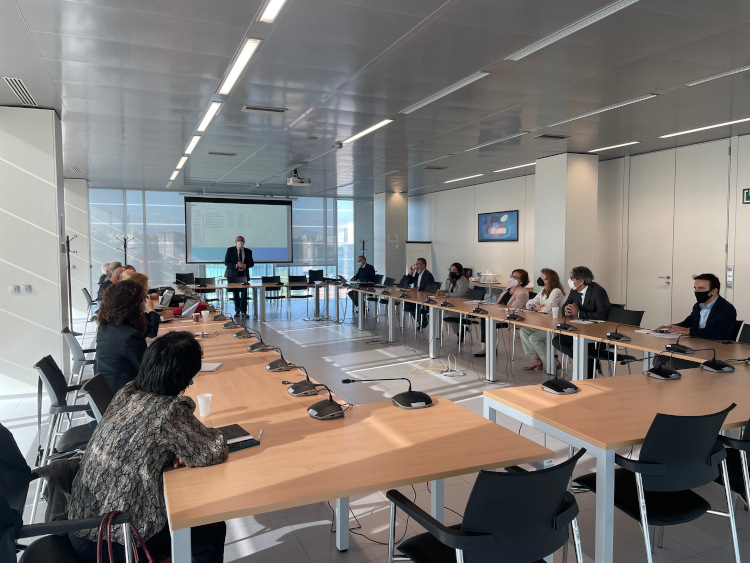-
|
02 December 2021
|Posteado en : Interview
We interview Enrique Playán, director of Spain’s State Research Agency, an institution with which FIIAPP works on international cooperation projects. This agency promotes scientific and technical research and funds R+D+i activities.
Why is cooperation in the field of research important?
International cooperation is the basis of scientific development. Sometimes this is because you have to contact people who do not live in the same country, whereas in others, it is necessary to solve problems that go beyond the limits of a given country. Scientific cooperation is also part of international cooperation at a political level. Scientific diplomacy is a fundamental element in relationships between countries. Science is an area in which understanding is the general norm and which therefore has plenty to teach other types of political relations. I am not aware of disputes in international scientific cooperation, for example.
Is the response to the pandemic a clear example of scientific cooperation?
Indeed, in cases where there is a serious humanitarian situation, science still responds more from a perspective of sharing knowledge and cooperation. This has been the case in the case of the pandemic, but it is not an exception, it is the general rule.
Another example of cooperation in this area is the twinning project between Tunisia and Spain in which the State Research Agency participates. Why are such projects important?
Tunisia’s project for capacity-building and institutional reform is not only of importance to Tunisians. These issues, including institutional reform and ensuring the best possible skills, are also very important in Spain. Research groups established through relationship between the two countries have a long history.

Meeting between Spanish and Tunisian researchers at Spain’s State Research Agency What is the relationship like between Tunisia and Spain?
Spain’s relations with Tunisia have been privileged due to numerous historical affinities. It is very important that these relations intensify through this Spanish/Tunisian outreach project and the scientific systems in the future.
The problems of water, agriculture and food in Tunisia and Spain are very similar. The management of brackish water, scarcity, floods, the relationship of water with energy, food etc. are issues that are problems of first magnitude for Spain and in which we find an affinity in the problems we face, in the solutions and varied approaches between countries that is very enriching in terms of research activities.
Is Spain a point of reference in the field of research?
In many ways, yes. Spain has a great capacity to carry out research and to be among the leading countries in general and in some scientific disciplines in particular. The tenacity of researchers here has been key. Although in many aspects and at many times the necessary levels of investment required for research have been lacking, extensive programmes have ensured that Spanish science is among the very best in the world.
Mention the key role of female researchers. At FIIAPP, we believe that it is fundamental to highlight the #PublicTalent of Spain’s national, regional and local administration.
I have complete faith in Spain’s scientific system and the ability of its professionals and the research managers in universities and research centres, as well as in the agency itself and other public funders I believe that we have high-quality human resources at our disposal and that their skills have to be protected to enable them to continue to make Spanish science a leading light in the international environment.
Why is research important for the development of a country?
Because research is the driving force behind well-being. When I say well-being, I include development and economic growth, but I am not limiting myself to that alone. Research is the fuel that powers companies and sets them apart. Ensuring that Spain’s progress is fuelled by a knowledge-based economy is a priority of the first magnitude. It is what will make Spain grow even in times of economic downturn, distinguishing itself from its neighbours and setting it apart from aspects that so characterised the twentieth century, such as the availability of natural resources and other activities that do not have an added value based on knowledge.
Our young people’s job prospects to a large extent rest on us having the capacity to generate employment with high added value and that requires a lot of training. Research is not a policy that can be isolated from the country’s progress, but should rather be linked to other aspects, such as business development and education. All these factors have to be put on the table so that this shift towards a knowledge economy can take place.






